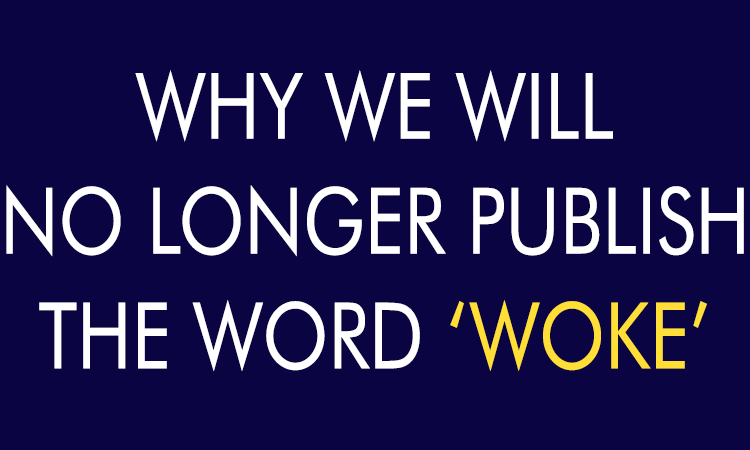One idea that I’ve fondly taken from Augusto del Noce is that ideologies have an internal logic to them, which unfolds as they interact with real-world events. Philosophies aren’t static, but constantly changing as they play out against one another historically. This view, while similar to the Marxist notion of praxis, finds ultimate inspiration from Joseph de Maistre. It’s de Maistre who writes that the French Revolution sweeps men up against their will and devours its own children.
Once put into practice, revolutions take on a life of their own, and like a wild tiger on a leash, drag their authors to new and unheard-of places. This isn’t to deny human free will; something I strongly affirm. It’s rather to recognise that rational humans, faced with circumstances, strive to act consistently with what they believe. This mechanism of consistency is what causes ideologies to evolve over time.
This insight is a powerful tool for understanding the long-term consequences of philosophies. The social sciences may quantify popular actions and opinions, but because human wishes are often nebulous, and people are fond of lying to themselves, there’s always room to dispute the results. The romantic primitivism of Jean Jacques Rousseau is one such ideology. Since being unleashed into the world from the bloody womb of the Reign of Terror, it has branched in many different directions and morphed into shapes Rousseau himself wouldn’t have recognised.
To define romanticism, I turn to Irving Babbitt and his 1919 work Rousseau and Romanticism. Romanticism sets itself in opposition to classicism. Classicism seeks standards for ethics and culture in universal types which it deems natural. It’s not the case that classicism seeks rules necessarily (lest we confuse it with Kantianism). Aristotle is the foremost classicist, yet he denies that norms are truly codifiable into rules. A universal type is rather an ideal based upon the nature of something. A classicist (like Aristotle) might say that being polite at the dinner table is something we should do, and this politeness consists of showing due moderation in eating, drinking, talking etc. But this isn’t a rule so much as a way of displaying the excellence proper to a human being.
Classicism isn’t opposed to emotion either. Rather, it subdues emotions to rational norms. Human nature has a standard of excellence which demands the proper use of emotion. In other words, emotions are good or bad depending on how we wield them according to a standard for the human species. The one able to do this is a universal type, what Aristotle calls the phronimos, or wise man. The later Stoics didn’t condemn emotions entirely, as the popular misconception of them. They rather encouraged natural emotions and discouraged the unnatural. Again, nature is a standard for ideal behaviour, external to individual fancy.
Romanticism, on the other hand, seeks standards in what’s unique and unrepeatable. Instead of conforming to generic ideals, goodness comes from spontaneous individual acts and thoughts. The cause for this is Rousseau’s doctrine of original sanctity. Classicism makes a distinction between ‘things-as-they-are’ and ‘things-as-they-ought’. Humans, animals, and plants don’t come into the world fulfilling an ideal; they arrive imperfect and must strive after their ideal. If we deny this, as Rousseau does, then to be good just is to be what one is. The generic ideal has no purpose and drops out. Authenticity to oneself as one is becomes the aim of life, and this can only find expression in unrepeatable spontaneous acts.
Indeed, once authenticity becomes central, it’s but a short step to rebelling against all standards which society imposes on the self. Since whatever standards society imposes must be ideal repeatable types, and no ideal repeatable types are authentic, no socially imposed standards can be authentic. And since goodness lies in authenticity, being truly good means casting off the standards society has imposed.
As Alasdair Macintyre wryly says in After Virtue, Enlightenment philosophes have the least self-awareness of all thinkers. They create new and revolutionary systems, but the content of their morality is entirely inherited from the civilisation they’ve inherited and which they despise. Thus, Rousseau’s ethics are stuffed full of quaint and puritanical Calvinist ideas from his Genevan upbringing. “Effeminacy” is one of his constant worries, and he applies the term, in boyish fashion, to anything he doesn’t like. Thus, in the Discourse on the Origin of Inequality, he can condemn civilised man:
“By becoming sociable and enslaved, he becomes weak, fearful, and grovelling, and his soft and effeminate way of life ends by enervating both his strength and his courage.”
Take these relics away, however, and Rousseau’s romanticism has only its sentimental primitivism to act as a limiting moral principle. Goodness is whatever lies in the untainted human heart, freed from social corruption. What becomes of it then? I wager it must enter an eternal spiral of liberation. Romanticism is built on the idea that we’ll be truly happy only when we free ourselves from all external rules and uncover a pre-social authenticity. Since this is a lie, no amount of liberation will ever create happiness. So, to remain consistent with itself, romanticism must seek ever more shackles of oppression to shatter. It’s either that or admit error.
The progressive radicalisation built into romanticism is visible everywhere. The sexual revolution, for example, has no brakes, because it’s built on a romanticised and primitivist vision of sex that would be falsified the moment brakes are applied. The radicals of the mid-twentieth century believed that socialised sexuality was corrupt, and once the orgasm was freed from all external restraints, pure happiness would result (Wilhelm Reich, for example, thought-free love was the precondition to utopian social democracy). Free love hasn’t made us happier, however. So, the answer is to find ever more previously unknown sexual taboos, whose chains we must shatter if we’re at last to be free.
In everyday morality, romantic assumptions have remade the life quest we each undertake for goodness, into a quest for authenticity. Finding one’s true self is now a drain on the wallet of the entire Western bourgeoisie. People of ages past underwent transformative moral journeys that turned them from sinners to saints, but theirs wasn’t a trek for authenticity. They did something far more mundane: they changed their minds. There’s an implicit vanity in the true-self doctrine. Changing your mind means admitting error. Finding your true self means you were right all along, but just didn’t notice it, because society was keeping you blind.
The cultural production of this quest is, I believe, simply inferior to the production of a mind that looks outwards from itself onto something else. Someone obsessed with finding his authentic self doesn’t have time to stand in awe of things greater than himself. What is falling in love, if not to be overcome by the sense of the intrinsic irreplaceable value of another person, without reference to oneself? We have all effectively become Rousseau writing his Confessions. A man who delighted in nature and other people only as frissons to express his authentic self, and could begin his book with the words:
“Here is the only portrait of a man, painted exactly after nature and in all her truth, that exists and probably ever will exist.”
In education, romantic ideas have done away with the rote learning that characterised pedagogy from Ancient Greece, through the middle ages and down to the Victorian Age. Twentieth-century educators like John Dewey, following in Rousseau’s footsteps, sought to remake schooling around the true self doctrine. Instead of moulding a pupil to conform to an ideal (a gentleman or citizen), modern education exists to help him discover his uncorrupted pre-social self. Self-expression without rules has become the educational norm, with the result that we have people who are experts in analysing their own minds and emotions, but incapable of self-denial or rigour. The excellence of mind and body requires constant training. We accept this more readily about the body because physical fitness is visible. But the mind, which is invisible, needs just as much training to be fit for purpose.
In the end, I see romanticism as an enormous civilisational gamble. The difference between classicism and romanticism is about what we think reality is truly like. The classicist sees a human race born lacking and sees culture as how a scaffold is to a building. Culture exists as an aid to human completion. The romantic, meanwhile, claims that human nature isn’t completable, but already complete, and merely corrupted. He wagers that if we accept this idea, we can remake the world for the better. Like any gambler, he doesn’t think about the stakes if the wager is lost. Here the stakes are social catastrophe if the assumption is untrue. If the truth is classical, then romanticism is akin to raising a lion on a strict vegetarian diet.



